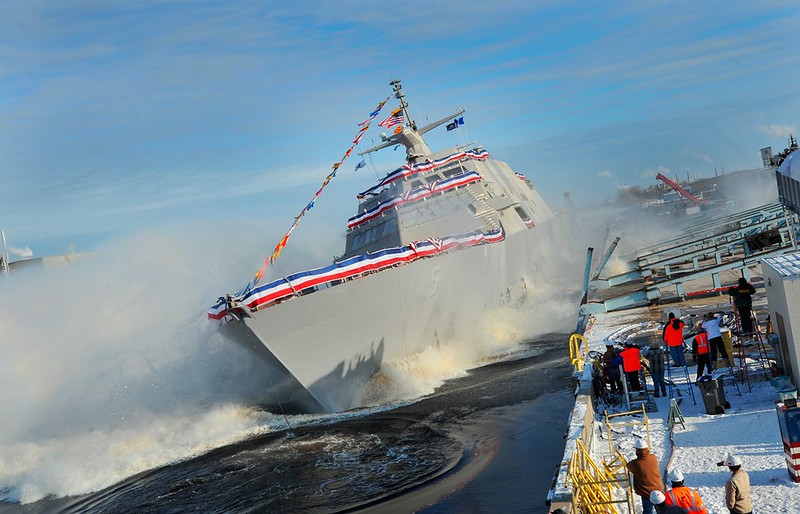This story is dated today..3 hours ago.
By Sui-Lee Wee
3 hours ago
BEIJING (Reuters) - China on Wednesday confirmed an incident between a Chinese naval vessel and a U.S. warship in the South China Sea, after Washington said a U.S. guided missile cruiser had avoided a collision with a Chinese warship maneuvering nearby.
Experts have said the near-miss between the USS Cowpens and a Chinese warship operating near China's only aircraft carrier, the Liaoning, was the most significant U.S.-China maritime incident in the disputed South China Sea since 2009.
China's Defense Ministry said the Chinese naval vessel was conducting "normal patrols" when the two vessels "met".
"During the encounter, the Chinese naval vessel properly handled it in accordance with strict protocol," the ministry said on its website ().
"The two Defense departments were kept informed of the relevant situation through normal working channels and carried out effective communication."
But China's official news agency Xinhua, in an English language commentary, accused the U.S. ship of deliberately provocative behavior.
"On December 5, U.S. missile cruiser Cowpens, despite warnings from China's aircraft carrier task group, broke into the Chinese navy's drilling waters in the South China Sea, and almost collided with a Chinese warship nearby," it said.
"Even before the navy training, Chinese maritime authorities have posted a navigation notice on their website, and the U.S. warship, which should have had knowledge of what the Chinese were doing there, intentionally carried on with its surveillance of China's Liaoning aircraft carrier and triggered the confrontation."
Washington said last week its ship was forced to take evasive action to avoid a collision.
The incident came at a time of heightened tension in the region following Beijing's declaration of an air Defense identification zone further north in the East China Sea, which prompted protests from Washington, Tokyo and Seoul.
U.S. Secretary of State John Kerry on Tuesday said maritime disputes between countries should be resolved peacefully through arbitration though the United States would speak out when a country, such as China, took unilateral action that raised the potential for conflict.
Chinese Foreign Ministry spokeswoman Hua Chunying said Kerry and Japanese Prime Minister Shinzo Abe, who has been equally critical of the air Defense zone, should stop harping on the issue.
"The show the relevant parties have put on is enough. They should give it a rest. If they really care about this region's peace, they should ... stop fomenting trouble," she told a daily news briefing.
China's Defense Ministry said, however, there were "good opportunities" for developing Sino-U.S. military ties.
"Both sides are willing to strengthen communication, maintain close coordination and make efforts to maintain regional peace and stability," the ministry said.
The Liaoning aircraft carrier, which has yet to be fully armed and is being used as a training vessel, was flanked by escort ships, including two destroyers and two frigates, during its first deployment into the South China Sea.
Friction over the South China Sea has surged as China uses its growing naval might to assert a vast claim over the oil-and-gas-rich area, raising fears of a clash between it and other countries in the region, including the Philippines and Vietnam.
The United States had raised the incident at a "high level" with China, according to a State Department official quoted by the U.S. military's Stars and Stripes newspaper.
Beijing routinely objects to U.S. military surveillance operations within its exclusive economic zone, while Washington insists the United States and other nations have the right to conduct routine operations in international waters.
China deployed the Liaoning to the South China Sea just days after announcing its air Defense zone, which covers air space over a group of tiny uninhabited islands in the East China Sea that are administered by Japan but claimed by Beijing as well.
(Additional reporting by Hui Li and Ben Blanchard; Editing by Clarence Fernandez)


